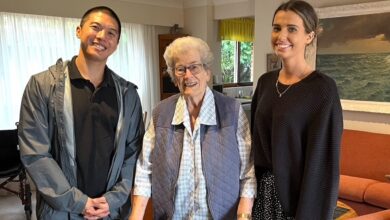Advances to ovarian cancer treatment
Promising Australian research could lead to improved ovarian cancer management and prevention strategies, say researchers.
A large study of Australian ovarian cancer patients has the potential to reshape the way the disease is treated, researchers say.
The Peter MacCallum Cancer Centre study of more than 1000 women with ovarian cancer could lead to better targeted chemotherapy and determine whether patients receive genetic testing.
Researchers found that women carrying mutations in two genes, BRCA1 and BRCA2, often responded to drugs better than women without the mutations and tended to survive longer, co-author Professor David Bowtell said.
The BRCA1 and BRCA2 mutations have been found to increase the risk of breast and ovarian cancers.
About half the women with the mutations did not have a family history of breast or ovarian cancer disease, which has implications for genetic testing.
Researchers said all women diagnosed with common ovarian cancers should be offered genetic testing, regardless of their family history.
"For a long time the holy grail of ovarian cancer has been the development of an early detection test, but that's been extremely difficult to do," Prof Bowtell told AAP.
"The best thing that we can do in terms of prevention is to identify those...carrying this mutation.
"If we want to save lives (and) actually prevent ovarian cancer in the first place, the genetics is really key to that," Bowtell said.
The research could influence changes to ovarian cancer management guidelines in Australia and overseas, co-author Dr Gillian Mitchell said.
"Women will now receive more accurate predictions about how their ovarian cancer may behave, ensuring they are better informed and receive the best available treatments to strike at this genetic vulnerability we find hiding in their cancer," she said.
The research also has implications for the way clinical trials are run.
The study was published this week in the Journal of Clinical Oncology.
AAP
Email: [email protected]





